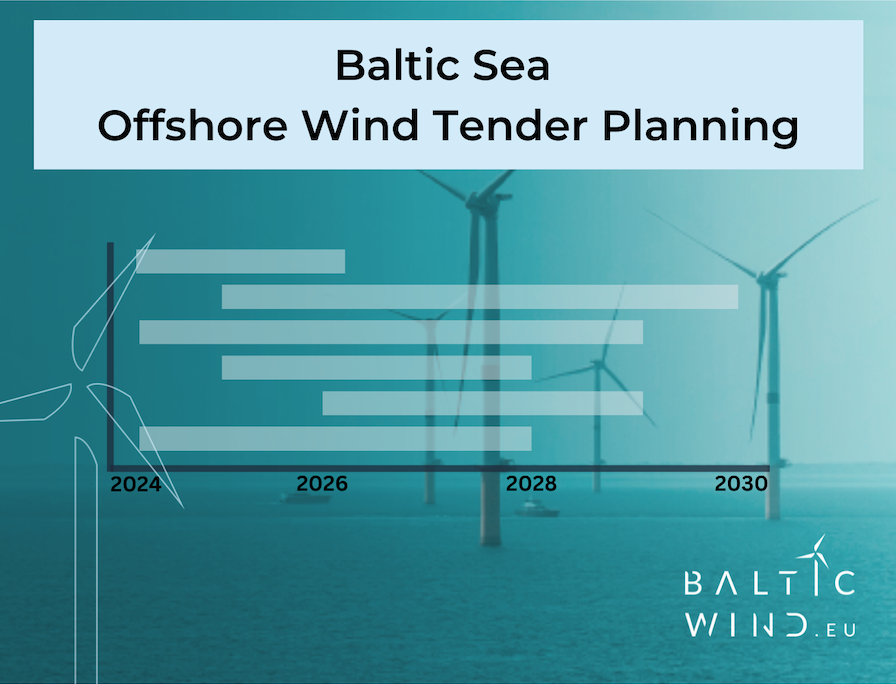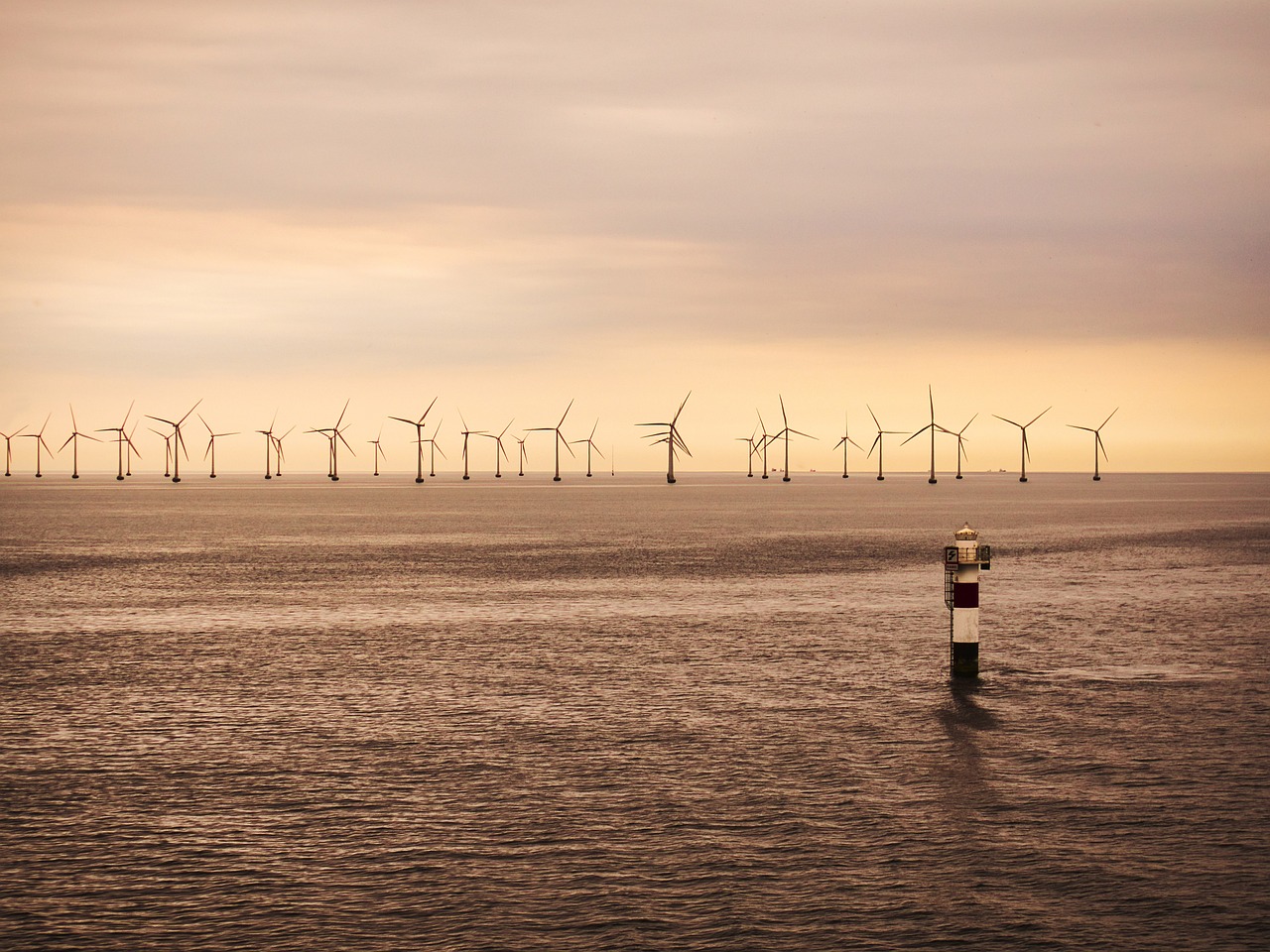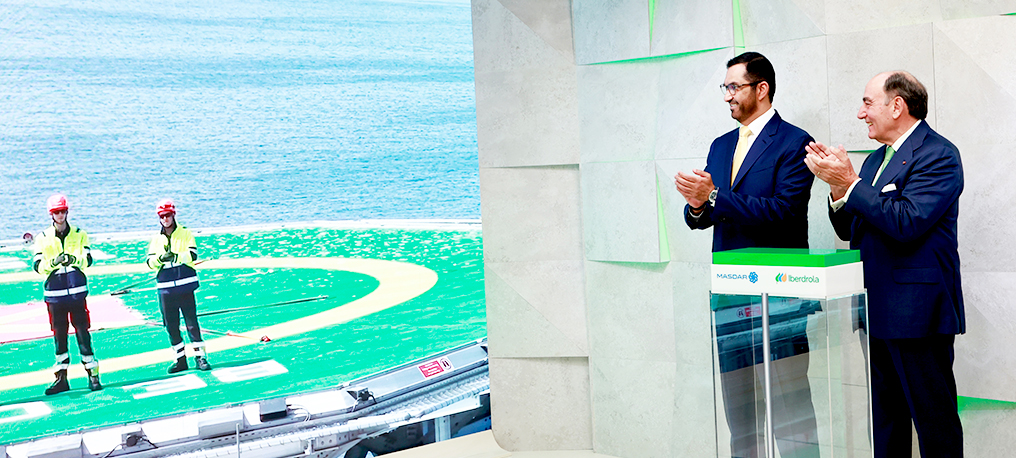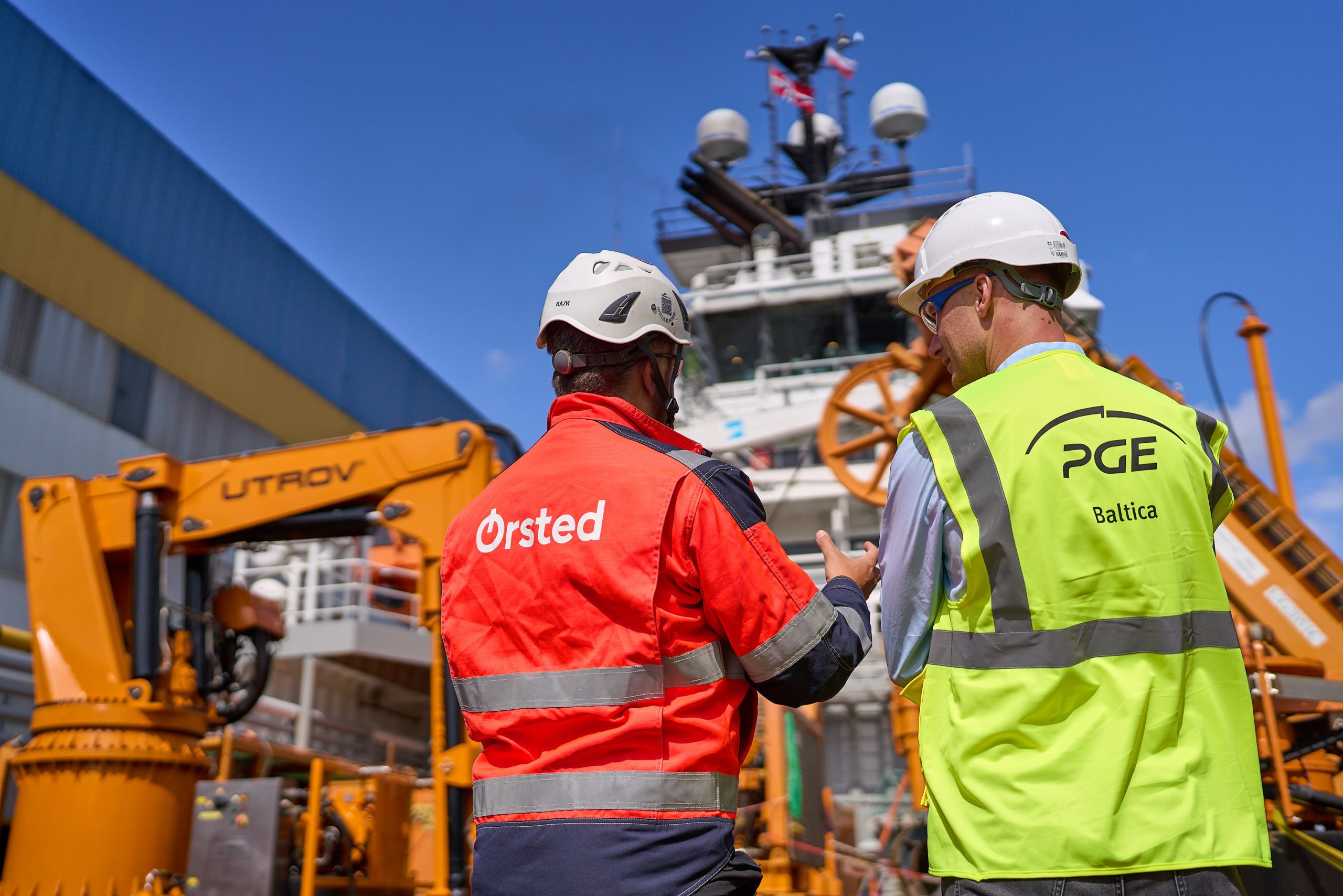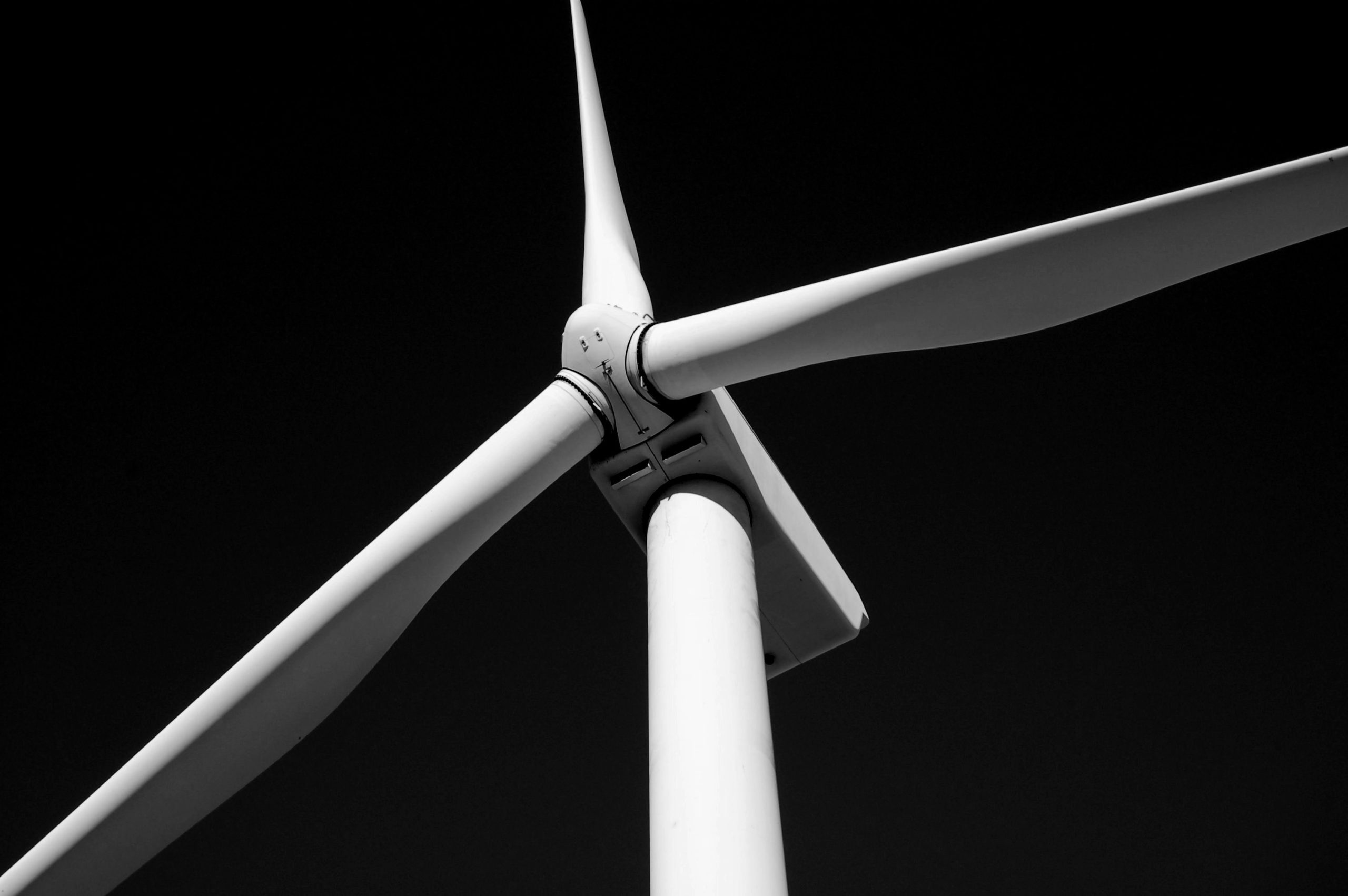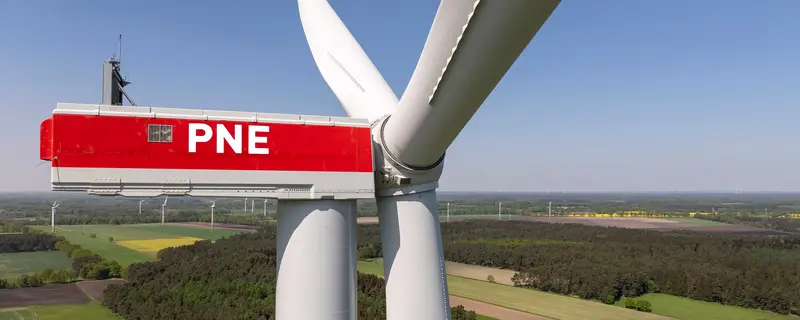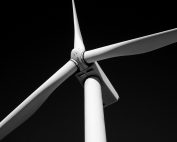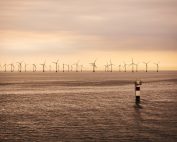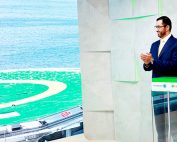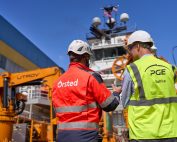The BEMIP Offshore Wind Working Group is implementing strategic priorities for 2024 to further advance offshore renewable energy in the Baltic Sea region. With a substantial potential of over 93 GW for offshore wind energy, the focus is on capitalizing on this resource while enhancing regional cooperation.
During the Energy Security Summit held in Marienborg, Denmark, on 30 August 2022, European Union Member States bordering the Baltic Sea reached a consensus to enhance cooperation, aiming to fortify the region’s energy security and amplify the current wind energy capacity of the Baltic Sea by sevenfold before 2030. Subsequently, non-binding offshore renewable energy sea-basin goals were established for 2050, incorporating intermediary targets in 2030 and 2040 for the Baltic Sea region in accordance with the TEN-E Regulation.
To operationalize this heightened ambition, BEMIP members acknowledged the outlined work priorities for the Offshore Wind Working Group for the year 2024, aimed at bolstering collaboration and expediting implementation efforts. Immediate action ensued with the launch of a joint BEMIP tender planning initiative, designed to enhance visibility and transparency regarding how BEMIP countries intend to translate their aspirations into tangible projects.
BEMIP (indicative) Offshore Wind Tender Planning
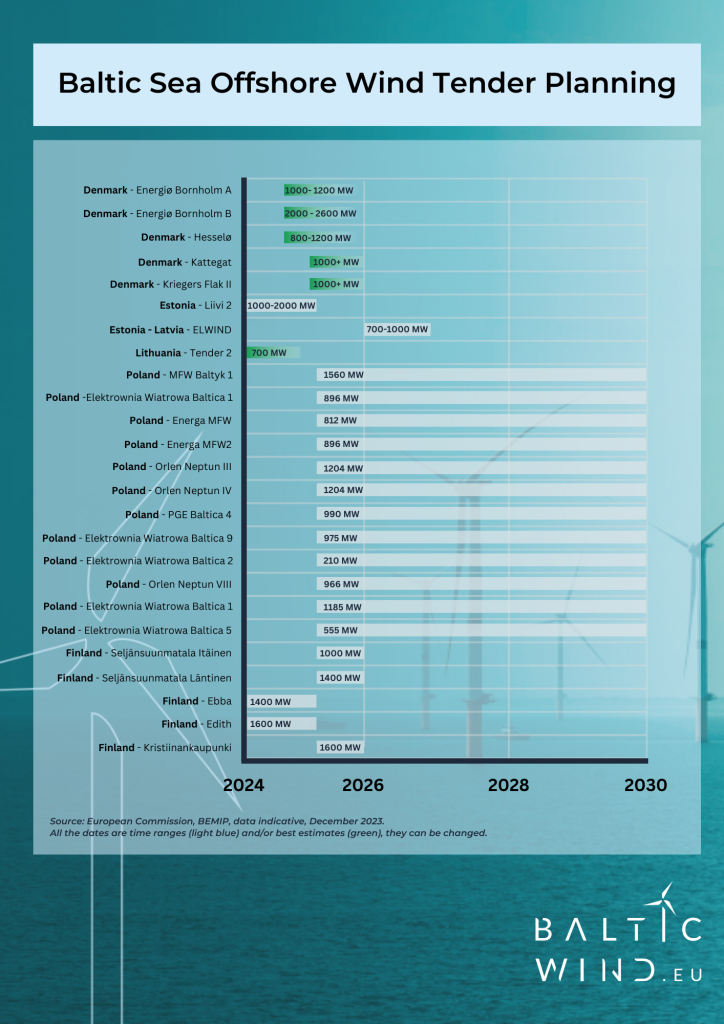
In 2024, the Working Group delineates four key areas of focus. Firstly, coordinated offshore grids take precedence, with an emphasis on learning from past experiences and exploring opportunities for interoperability with sectors like renewable hydrogen production. Deliverables include comprehensive overviews of existing commitments and legislative frameworks across BEMIP countries, setting the stage for efficient grid development.
Secondly, the group aims to bolster maritime spatial planning, aligning efforts with the HELCOM-VASAB working group to streamline coordination and environmental assessments. By tapping into existing Maritime Spatial Planning (MSP) fora, the aim is to leverage expertise and avoid duplicative efforts, fostering a conducive environment for offshore wind development.
Thirdly, the focus shifts to addressing financing challenges, with a keen eye on cost-benefit analyses and exploring available funding streams at both national and EU levels. This includes mapping out financing options and contributing to forthcoming guidance from the Commission, paving the way for sustainable and scalable offshore projects.
Lastly, expediting specific offshore projects and permitting processes remains a priority, with a focus on joint ventures and best practices sharing. By closely monitoring project developments and fostering dialogue on permitting procedures and public acceptance, the group aims to facilitate an accelerated build-out of renewable energy projects.
In summary, the BEMIP Offshore Wind Working Group’s plan for 2024 underscores a strategic and collaborative approach to harnessing the Baltic Sea’s renewable energy potential. By focusing on coordinated grids, maritime spatial planning, financing mechanisms, and project acceleration, the group aims to pave the way for a sustainable and prosperous future in offshore wind energy.
Below we present details:
1. Coordinated offshore grids.
The BEMIP Offshore Wind Working Group (WG) will concentrate on the outcomes and lessons learned from the first Offshore Network Development Plan (ONDP) exercise, also in view of the upcoming 2026 update; will explore the possible areas of cooperation and coordination on ensuring interoperability between the electricity grid and sector integration components, such as renewable hydrogen production and transmission; and will continue sharing information on processes for setting offshore targets, auctions and tenders schedules and planning. The WG will also cooperate with the Baltic Offshore Grid Forum (BOGI), when relevant, to facilitate communication and avoid duplication of work.
Possible deliverables:
– Overview table of all existing commitments, targets and tenders/auctions in the BEMIP countries on offshore renewables;
– Mapping of national legislation in the BEMIP countries for radial and hybrid connections;
– Integrated offshore development plan for the Baltic Sea Region (January 2024) and work on implementation.
2. Maritime spatial planning focusing on offshore wind development (co-chaired by Poland).
The BEMIP Offshore Wind WG will further cooperate with the HELCOM-VASAB working group on Maritime Spatial Planning to ensure better coordination of MSP and environmental assessment for offshore wind energy, also in view of the upcoming updated MSPs of some Member States. The WG will also further exploit possible synergies with already existing fora working on MSP, such as the North Seas Energy Cooperation (NSEC) , to tap into their specific knowledge and prevent duplication of efforts.
Possible deliverables:
– Establishing a cooperation framework with the HELCOM-VASAB working group;
– Coordinating MSPs and regional cooperation on any updates.
3. Cooperation on enabling appropriate financing (co-chaired by Estonia).
The BEMIP Offshore Wind WG will focus on cost benefit and cost sharing for offshore wind and hybrid projects, in particular with a view to contributing to the Commission’s upcoming guidance for a specific cost benefit and cost sharing for the deployment of the integrated ONDPs. The WG will also explore already available EU and national financing opportunities, national support scheme designs and alternative financing systems.
Possible deliverables:
– Mapping of available funding for offshore wind, focusing on available national funding (compatibly with State Aid rules) and on the EU regional/structural funds, managed by national and regional managing authorities within the Member States. Updates and presentation of the available Overview of EU funding for offshore renewables3 if relevant/updated;
– Contribution to the Commission’s consultation process on the upcoming guidance for a specific cost benefit and cost sharing;
– Regional cooperation and discussions on the cost-sharing for the Baltic Sea after guidance for a specific cost benefit and cost sharing is published in order to feed into the work strand to be led by ENTSO-E on the application of the cost-sharing guidance
4. Acceleration of specific offshore projects and permitting.
The BEMIP Offshore Wind WG will continue to discuss concrete plans for developing potential joint and hybrid offshore projects, share national updates on projects and cooperation on intergovernmental agreements. It will also exchange best practices on permitting for offshore renewable energy projects and explore synergies with NSEC and the NCA Platform in that field. Lastly, it will exchange best practices on public acceptance, especially with regards to onshore grid connection and to the impact of offshore infrastructure on other relevant considerations such as biodiversity, fisheries and military.
Possible deliverables:
– Close follow-up on all joint and hybrid offshore projects;
– A second BEMIP stakeholder event.
– Knowledge and best-practice sharing on national permitting procedures including barriers to an accelerated build-out of renewable energy projects
Source: BEMIP
